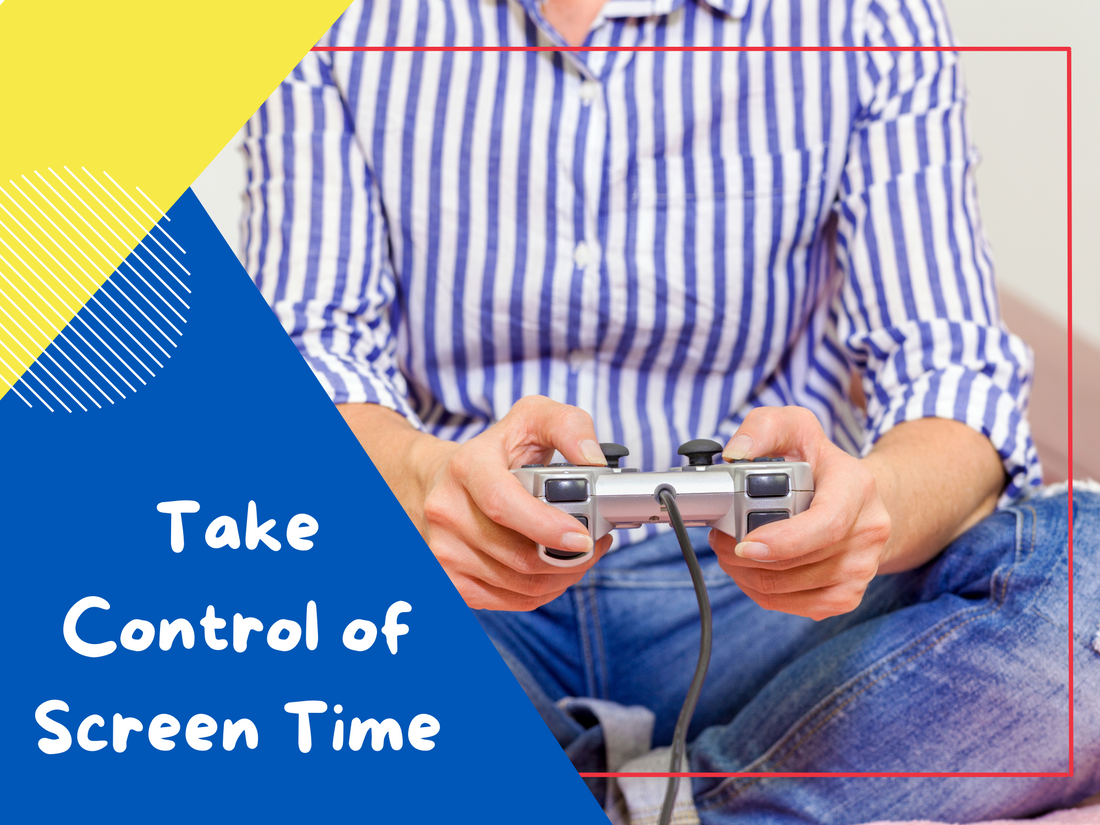The Benefits of Reducing Screen Time
My younger sister invited a friend to have dinner with our family. During dinner, her friend told us she wished her family ate dinner as our family did.
“During dinner, my family just plays on their phones,” she said.
There’s no doubt that technology has made our lives better. Smartphones, computers, television, and tablets make long-distance relationships possible, healthcare better than ever, information readily accessible, and so much more.
But technology is a tool. It shouldn’t run our life, and we shouldn’t be replacing beneficial activities and opportunities with more screen time. Limiting screen time can drastically affect adults and students, making it easier to work harder and keep learning!
The Impacts of Too Much Screen Time
Lack of Exercise and Increased Weight
Two studies published in The American Journal of Public Health (AJPH) found that men who watched more than 3 hours of TV daily, and women who watched more than 4 hours of TV daily had twice the prevalence of obesity compared to men and women who watched less than an hour. Numerous other studies support the link between TV watching and obesity, especially in children. Researchers believe the correlation is that people who watch a lot of TV are less likely to exercise vigorously than infrequent viewers.

Damage to Relationships
Increased Depression and Anxiety
Increased screen time damages our relationships. It also leads to increased depression and anxiety. Positive, meaningful social interactions are important. And we can’t get them from the internet.
A study of 14- to 17-year-olds found that high screen users (7+ hr/day) are over twice as likely to be treated by a mental health professional, be diagnosed with anxiety or depression, and take medication for mental health than low screen users (1 hr/day)

This same study found that among 2- to 17-year-olds, more than 1 hour per day of screen time was associated with lower psychological wellbeing, increased difficulty making friends, and less emotional stability.
The correlation between screen time and mental health has been better studied in children and teens. However, adult studies have also found that moderate and severe depression levels are significantly correlated to increased computer and TV use.
Trouble Sleeping
90% of studies among children and adolescents have found that screen time is adversely negatively correlated with good sleep. Although other factors are also to blame for this, screens emit a blue light that suppresses melatonin. Melatonin (a hormone) controls circadian rhythms and feeling sleepy. Melatonin suppression is bad news for a good night’s rest!
Damage to the Brain
Studies have found that screen addicts have grey matter loss in the frontal lobe (key for planning and organization), the striatum (in charge of reward pathways), and the insula (critical in developing empathy and compassion for others).
Screen addicts also have compromised white matter integrity, reduced cortical thickness, impaired cognitive functioning, and more impacting everything from learning to memory to mental health. This is especially critical in children, whose brains are still developing. Imagine what this does to academic performance!
Be the Master, Not the Servant
Hopefully, you can see why reducing screen time matters. Most of the negative impacts of screen time are associated with either spending an excessive amount of time on devices (negative impacts begin to be seen for more than 1 hr/day of screen time) or screening when you should be doing something else.
So don’t trash your smartphone or pull the plug on your computer. When you use them in a controlled, proper manner, they are powerful tools.
To take the best care of your mind and body while using screens, consider applying the following tips:
- Don’t use screens at mealtime, in your bedroom, or when you are physically spending time with someone else.
Be mindful of what you are eating and the people you are with. Keep screens out of the bedroom to help you associate that room with sleep.
2. Have a backup plan for when you’re bored.
Many people play on their phones because they’re bored. Have a specific purpose when you get on your device and once you’ve accomplished it, get off. It helps to have a list of non-screen activities to do when you’re bored.
3. Turn off notifications
Ping! Many people get back into their device every time it buzzes. Turn off your notifications to keep this from happening.
4. Use apps to track phone time
Several free apps track your phone time and give you notifications of when to get off. It’s a good reminder, and it can help you to keep electronic time to a minimum.
5. Don’t use any screens for at least 1 hour before going to bed
The blue light screens give off wreaks havoc on your sleep cycle. Avoid using screens for an hour before bed to get the best night’s sleep.
The Take Home
Screens aren’t bad. Much of the technology available today is extremely useful and adds to our quality of life. But there’s always too much of a good thing. Take the time to learn how to use screens responsibly so you can be a happier, healthier you!
Teacher Power Cares

Technology is an essential part of teaching, especially during the pandemic. We want students and teachers to be well informed on all of the ups and downs of devices and have everything they need to use them properly. That’s why we post informational articles on technology, teaching, book reviews, and self-care! Check out our products here and keep being the awesome educator that you are!
By: Emeline Haroldsen
The content of Teacher Power’s website is for information only, not advice or guarantee of outcome. Information is gathered and shared from reputable sources; however, Teacher Power is not responsible for errors or omissions in reporting or explanation. No individuals, including those taking Teacher Power products, should use the information, resources or tools contained within to self-diagnosis or self-treat any health-related condition. Teacher Power gives no assurance or warranty regarding the accuracy, timeliness or applicability of the content.
Sources:
L A Tucker and M Bagwell. “Television Viewing and Obesity in Adult Females”
American Journal of Public Health. 1991. https://ajph.aphapublications.org/doi/abs/10.2105/AJPH.81.7.908
L A Tucker and G M Friedman. “Television Viewing and Obesity in Adult Males”.
American Journal of Public Health. 1989. https://ajph.aphapublications.org/action/showCitFormats?doi=10.2105%2FAJPH.79.4.516
Tucker, L.A. and Tucker, J.M. “Television Viewing and Obesity in 300 Women: Evaluation of the Pathways of Energy Intake and Physical Activity”. Obesity. 2011. https://onlinelibrary.wiley.com/doi/full/10.1038/oby.2011.184
Madhav, K. C., Sherchand, Shardulendra Prasad. Sherchan, Samendra.“Association between screen time and depression among US adults”. ScienceDirect. 2017. https://www.sciencedirect.com/science/article/pii/S2211335517301316
Mayer, Beth Ann. “The Mental Health Effects of Being Constantly Online”. Healthline. 2020. https://www.healthline.com/health/the-mental-health-effects-of-being-constantly-online
Twenge, Jean M, and W Keith Campbell. “Associations between screen time and lower psychological well-being among children and adolescents: Evidence from a population-based study.”NCBI. 2018. https://www.ncbi.nlm.nih.gov/pmc/articles/PMC6214874/
Hale, Lauren. Guan, Stanford. “Screen time and sleep among school-aged children and adolescents: A systematic literature review”. ScienceDirect. 2015. https://www.sciencedirect.com/science/article/pii/S1087079214000811?casa_token=HbWI8FfSd6AAAAAA:8v3iRcEGOtMDpzumuYLDPpgQH64ulA-wfNNdzSfSMmTlUzElR9fYfSSFBHTTAo3FYJhKd5gZ
Neophytou, E., Manwell, L.A. & Eikelboom, R. “Effects of Excessive Screen Time on Neurodevelopment, Learning, Memory, Mental Health, and Neurodegeneration: a Scoping Review”. Int J Ment Health Addiction. 2021. https://link.springer.com/article/10.1007/s11469-019-00182-2#citeas
Dunckley, Victoria, L. “Gray Matter: Too Much Screen Time Damages the Brain”. Psychology Today. 2014. https://www.psychologytoday.com/us/blog/mental-wealth/201402/gray-matters-too-much-screen-time-damages-the-brain
Bova, Ida. “How Much Is Too Much? Technology, Screen Time, and Your Mental Health”. The Center for Treatment of Anxiety and Mood Disorders. https://centerforanxietydisorders.com/how-much-is-too-much-technology-screen-time-and-your-mental-health/
“Benefits of Reducing your Screen Time”. Barnsley College Alumni and Friends. https://www.barnsley.ac.uk/benefits-of-reducing-your-screen-time/

